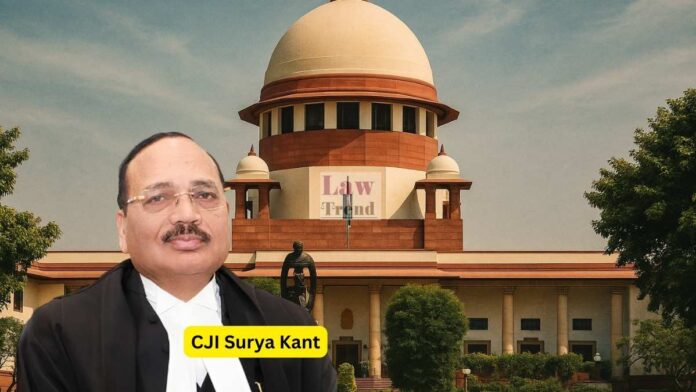The severe air pollution gripping the national capital has prompted the Supreme Court to consider shifting its proceedings to a virtual-only mode, with Chief Justice of India (CJI) Surya Kant revealing on Wednesday that the toxic air had personally affected his health.
The discussion on suspending physical hearings arose in the courtroom as senior members of the Bar expressed difficulties in attending court amidst the worsening Air Quality Index (AQI).
CJI and Senior Counsels Cite Health Concerns
The issue came to light during a hearing regarding the Election Commission’s revision of electoral rolls in states including Tamil Nadu, Kerala, and West Bengal. Senior Advocate Rakesh Dwivedi, appearing for the poll panel, requested an exemption from personal appearance for future hearings, citing health complications triggered by the pollution.
“I have congestion issues… Please allow my colleague to take notes. I want to appear through video conferencing on the next date,” Dwivedi submitted, explaining that he began facing issues after a morning walk. “I want your lordships’ leave. Permission may be given to appear online, I am not well.”
Supporting Dwivedi’s concerns, Senior Advocate Kapil Sibal highlighted the danger posed to senior members of the legal fraternity. “At our age, we are breathing this obnoxious air when the Air Quality Index (AQI) is 400-500,” Sibal remarked.
Responding to the senior lawyers, CJI Surya Kant shared his own experience with the city’s deteriorating air quality. “Yesterday, I went for a walk for an hour. I was not feeling well,” the CJI observed.
Potential Shift to Virtual Mode
Acknowledging the gravity of the situation, the bench discussed the possibility of modifying the court’s functioning to protect the health of lawyers and litigants. A specific suggestion was mooted to allow virtual hearings specifically for lawyers aged 60 and above.
However, CJI Kant emphasized that any decision regarding a shift from the current hybrid system to a fully virtual or modified arrangement would be taken only after a consensus is built with the legal community.
“If I take any decision, then we will take the Bar into confidence first. We will see the hardship faced by lawyers and litigants,” the CJI stated. He further assured the Bar that he would meet with the office-bearers of the Supreme Court Bar Association in the evening to discuss the matter and “take some steps” if a proposal is received.
“Very Poor” Air Quality Persists
The Supreme Court currently functions in a hybrid mode, allowing lawyers to appear either physically or virtually. However, the consistent dip in air quality has reignited the debate on mandatory virtual hearings, a practice extensively used during the COVID-19 pandemic.
On Wednesday morning, Delhi’s air quality remained in the “very poor” category with an AQI reading of 335. According to the Central Pollution Control Board (CPCB), an AQI between 301 and 400 is classified as “very poor,” which can cause respiratory illness on prolonged exposure. The city has been battling these hazardous conditions for several weeks, raising alarms across administrative and judicial circles.




